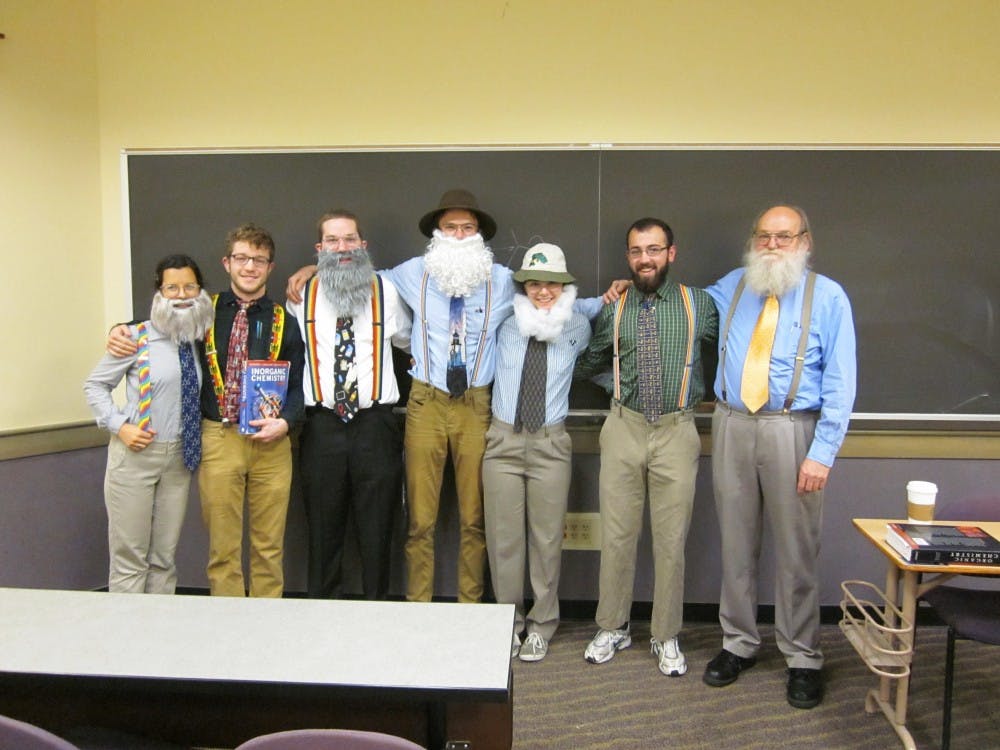Emera L. Riley |
Raymond Bard's office looks exactly like a chemistry professor's ought to. There are odd liquid-filled vials, huge stacks of papers and the man himself, complete with rainbow suspenders and a science-related tie.
Bard’s unusual lecture style – famous for incorporating storytelling as well as dances, nerf guns and loud exclamations – are lessons students remember. But after 29 years at the University of Portland, this will be Bard’s last year of teaching.
Brian Carter, a senior biology major, called Bard “the beloved.”
“You can tell by the length of his beard he has years of experience,” Carter said.
Throughout his career, Bard's main passion was teaching. According to Rhonda Bard, his wife and fellow chemistry lecturer, teaching has always driven him.
“Training undergraduates, not just in the lower-level courses but as research students, has been a huge passion of his," Rhonda said.
Bard was inspired to become a chemist by his high school teacher, Mr. Fortutci, who taught with both integrity and energy.
"He was really motivated to get people to enjoy and understand chemistry," Bard said. And it didn’t hurt that Fortutci allowed his students to partake in dangerous experiments like making chlorine.
Rhonda describes her husband's teaching style as one that thrives best with student-teacher communication.
"Give and take, Socratic style and occasional playful stunts are three of his teaching elements," she said.
Kelly Ramzy, a senior biochemistry major, said Bard’s teaching style inspires students to become well-rounded in all things.
"He encourages us to ask questions and to actually understand," she said. “He really is encouraging growth and student understanding, outside of the field of chemistry.”
Bard said his favorite part of being at UP is "seeing the delight of students as they come up with ideas on their own and they actually work."
For Bard, retirement does not mean slowing down. He plans to return to his hobbies and woodworking, volunteer in the community and take up gardening.
As for his service work, some options include setting up a program to teach lower income families gardening skills. Another idea is to help combat Agent Orange in Vietnam, isolating bacteria that could decompose it.
Bard's final advice to students is to trust the education they’re getting here.
"Having students get out of here and see that they can do things on their own, and think on their own, and come up with the new ideas,” Bard said. “That they don't need R. R. Bard to look over their shoulder.”
Also, he said, students should not be afraid of going after what they want. Teachers like him have given them all the skills they need to achieve their dreams.
"It's up to you to stick out that thumb, so somebody can go grab it," Bard said. Emera L. Riley is a staff writer for The Beacon. You can reach her at rileyem18@up.edu.








